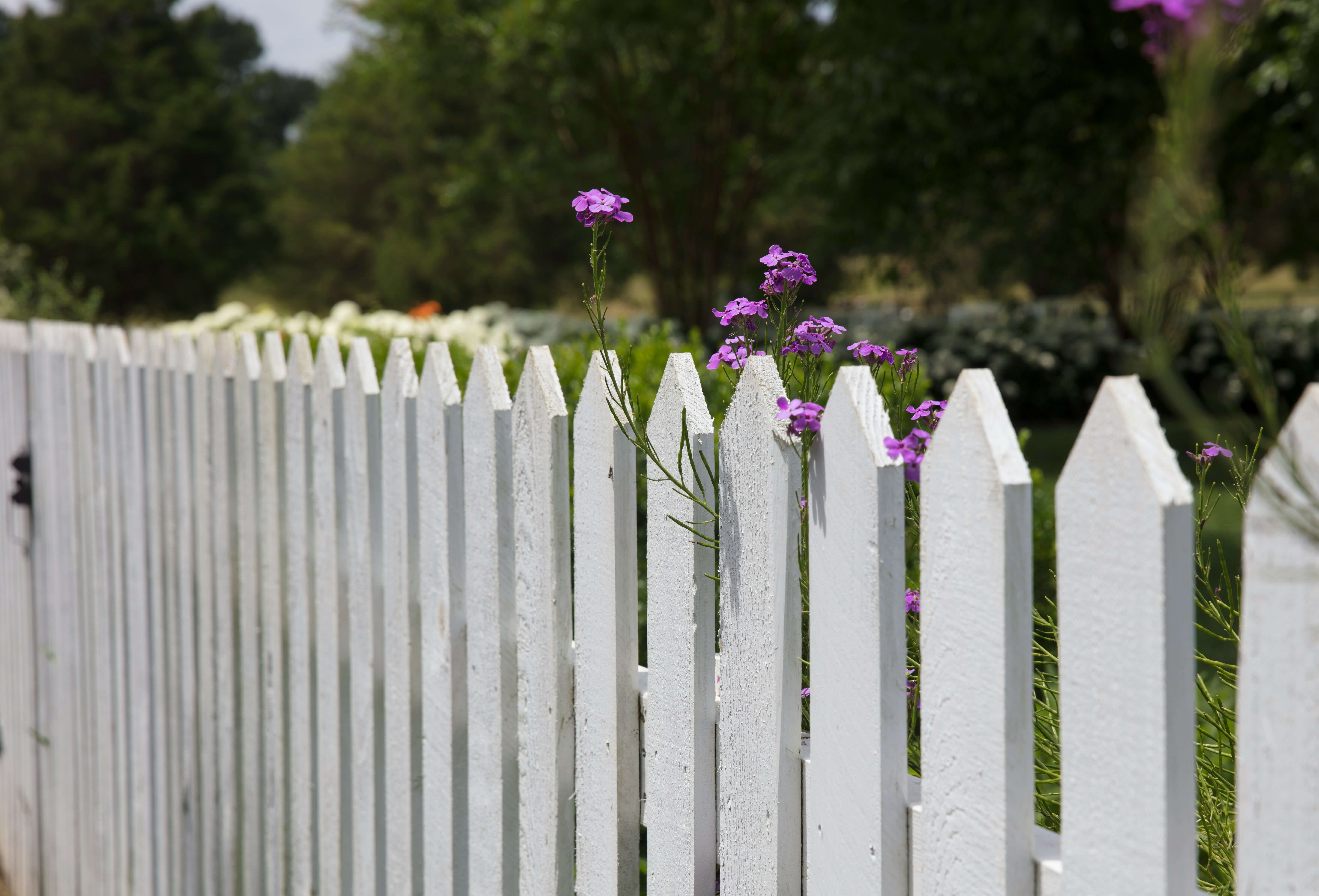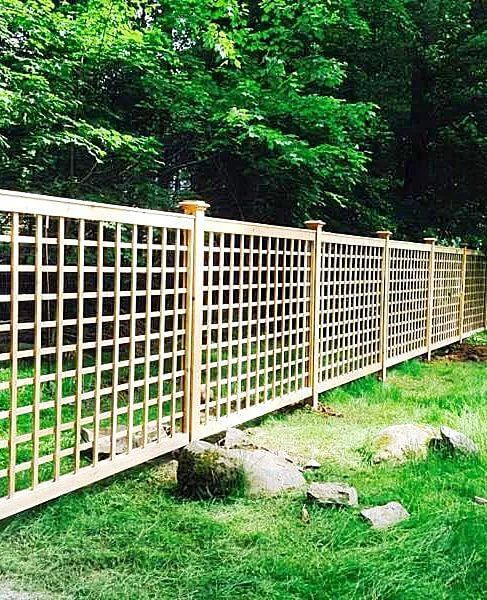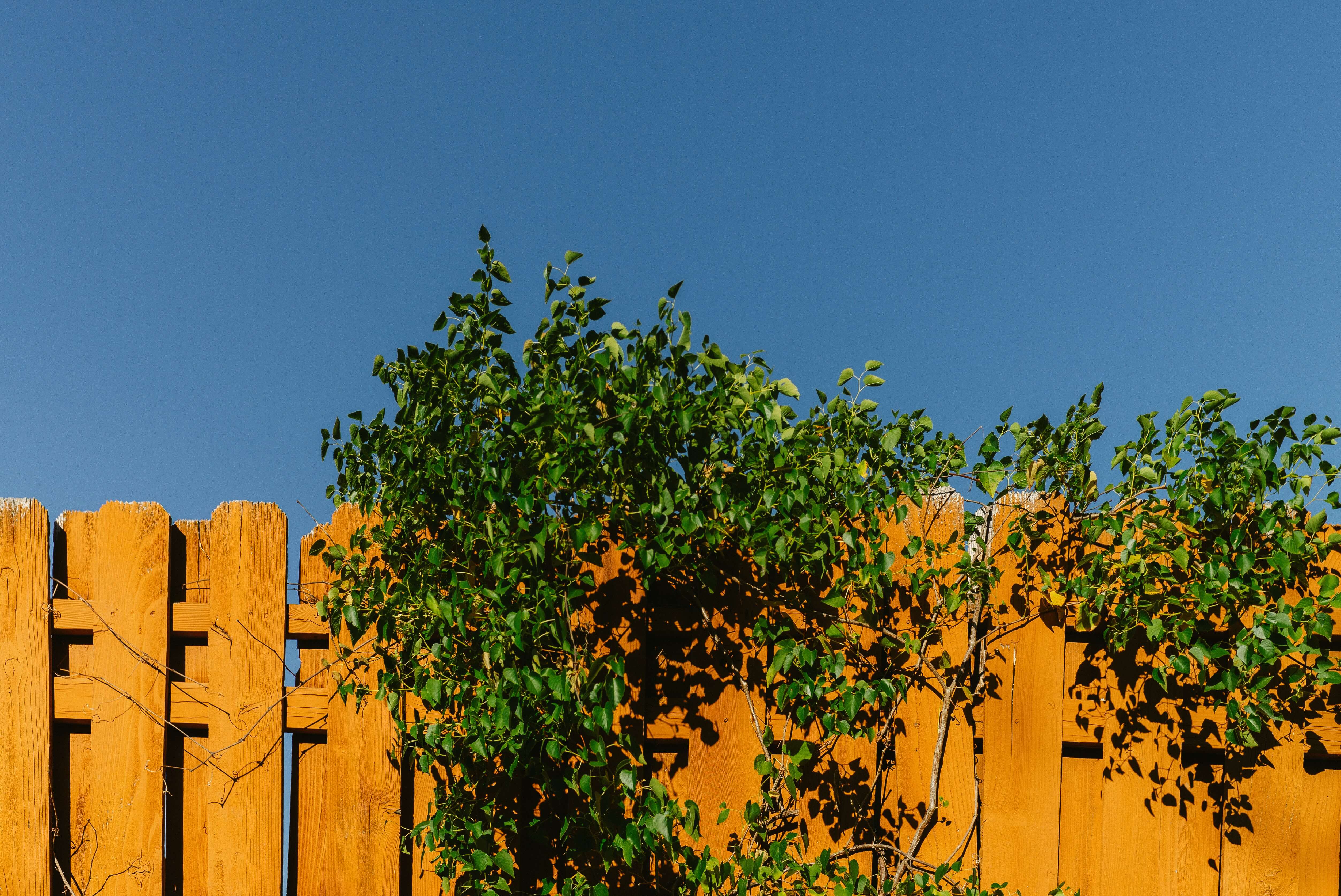Why Choose a Privacy Fence?
A privacy fence provides more than just a visual barrier — it offers a sense of seclusion, making your yard feel like a personal retreat. Whether you’re hosting a gathering, enjoying a quiet afternoon, or letting your pets roam freely, knowing that you’re shielded from the outside world enhances your outdoor experience. The peace of mind that comes with not worrying about neighbors or passersby watching can help you feel more comfortable and relaxed in your own space.
In addition, privacy fences offer a level of comfort for families with children or pets, ensuring they can enjoy the outdoors safely without wandering off or being distracted by external elements. It’s an investment that not only elevates your yard’s aesthetic but also adds value to your home by enhancing its livability and appeal.

Security
One of the most common reasons homeowners opt for privacy fences is security. A solid, tall barrier can discourage potential intruders from entering your property and provides a safe, enclosed space for pets and children to play.
Noise Reduction
Privacy fences are also a great tool for reducing noise, particularly if you live in a busy area or near a noisy street. A solid fence can act as a sound barrier, muffling the noise and creating a quieter outdoor living space.
Aesthetic Appeal
Beyond security and noise reduction, a privacy fence can also add to the visual appeal of your yard. A well-designed fence can complement your home’s architecture and landscaping, adding style and charm.
Factors to Consider When Choosing a Privacy Fence
Before deciding on a privacy fence, there are several factors to keep in mind to ensure you select the best option for your needs:
- Height: Typically, privacy fences range in height from 4 to 8 feet. Taller fences provide better privacy and security, but keep in mind that some areas have local regulations that limit the height of fences, especially in front yards.
- Material: The material you choose affects the appearance, durability, and maintenance of the fence. Options include wood, vinyl, composite, metal, and more, each with its own pros and cons.
- Maintenance: Some materials require more upkeep than others. For instance, wood fences may need staining or sealing over time, while vinyl fences are virtually maintenance-free.
- Budget: Your budget will also play a role in the materials and height of your fence. While wood and chain-link fences tend to be more affordable, vinyl or custom-built options can come at a premium.
Best Privacy Fencing Materials
There are various materials to consider for your privacy fence. Here’s an overview of the most popular options and their benefits.
1. Wood Privacy Fences
Best For: Traditional, natural look with great customization.
Why Choose Wood: Wood fences have been a classic choice for privacy for years. They offer a natural aesthetic and can be customized in terms of height, style (board-on-board, stockade, etc.), and finish. Additionally, wood can provide substantial privacy and security if installed correctly.
Pros
- Highly customizable in terms of height and style
- Natural and attractive appearance
- Can be stained or painted for different looks
Cons
- Requires regular maintenance (staining, sealing)
- Prone to weathering, warping, and insect damage
- Can be more expensive for high-quality wood options
2. Vinyl Privacy Fences
Best For: Low-maintenance and durable solutions.
Why Choose Vinyl: Vinyl fences are an excellent low-maintenance alternative to wood. They don’t warp, rot, or require regular painting or staining. Vinyl fences are durable and offer great privacy with solid, smooth panels.
Pros
- Low-maintenance, no painting or staining required
- Durable and long-lasting
- Resistant to pests, warping, and rot
Cons
- More expensive than wood
- Limited aesthetic customization options (though color choices are available)
- Can crack or break under extreme force
3. Composite Privacy Fences
Best For: A mix of durability, eco-friendliness, and aesthetic appeal.
Why Choose Composite: Composite fencing combines wood fibers and plastic, making it durable and low-maintenance like vinyl, while still offering a natural look. Composite fences are often made from recycled materials, making them an eco-friendly choice.
Pros
- Eco-friendly and sustainable
- Low maintenance, resistant to pests and decay
- Long-lasting and stable under different weather conditions
Cons
- Typically more expensive than wood and vinyl
- Limited design options compared to wood
- May fade over time in direct sunlight
4. Metal Privacy Fences
Best For: Security-focused homeowners seeking durability.
Why Choose Metal: While metal fences like wrought iron and aluminum are often used for security, they can also be designed for privacy with solid panels. Metal fences are durable, long-lasting, and add an elegant aesthetic to your home.
Pros
- Extremely durable and secure
- Low maintenance
- Can add a modern, sleek look to your property
Cons
- Can be more expensive than wood or vinyl
- Metal fences often require additional privacy features like slats or panels to ensure full privacy
5. Bamboo Privacy Fences
Best For: Eco-conscious homeowners who want an alternative to wood or vinyl.
Why Choose Bamboo: Bamboo is an eco-friendly and renewable resource that can create a unique and exotic look for your privacy fence. It’s durable, resistant to pests, and can withstand various weather conditions.
Pros
- Eco-friendly and sustainable
- Unique and attractive appearance
- Requires less maintenance than wood
Cons
- Can be expensive for high-quality bamboo
- Not as durable as vinyl or composite over time
- Limited availability depending on location
Cost Breakdown of Privacy Fencing
The cost of a privacy fence can vary depending on the material, height, and the size of the area to be fenced. Below is a general breakdown of the costs you can expect for different types of privacy fences.
| Material | Average Cost per Linear Foot | Average Total Cost (100 Linear Feet) |
|---|---|---|
| Wood | $10 to $30 | $1,000 to $3,000 |
| Vinyl | $20 to $40 | $2,000 to $4,000 |
| Composite | $25 to $45 | $2,500 to $4,500 |
| Metal | $35 to $50 | $3,500 to $5,000 |
| Bamboo | $15 to $35 | $1,500 to $3,500 |
Maintenance Costs for Privacy Fences
Wood Fences: Typically need to be restained or resealed every 2 to 3 years. The average cost of staining or sealing is $300 to $800.
Vinyl and Composite Fences: Require minimal maintenance but may need occasional cleaning, costing $100 to $300 every 1-2 years.
Metal Fences: Can require rust prevention or repainting, with maintenance costs ranging from $200 to $500 depending on the size of the fence.
How to Choose the Right Privacy Fence
When deciding on the best privacy fence for your yard, consider these key questions:
- What’s the primary purpose of the fence? Are you looking for privacy, noise reduction, or security? Determining your primary need will help you select the most suitable fence. For privacy, solid wood or vinyl fences with no gaps work well. For noise reduction, consider thicker materials like wood or composite, which can help absorb sound. If security is your concern, taller fences made of metal or vinyl are best, as they are more difficult to climb and provide a stronger deterrent.
- What’s your budget? Wood is typically the most affordable, while composite and metal fences tend to be pricier. If you’re looking for a more affordable option, pressure-treated wood or standard cedar could be your best choice. On the other hand, composite and metal fences tend to be more expensive upfront, but they offer greater durability and require less maintenance over time. Consider long-term savings when weighing the initial costs.
- How much maintenance are you willing to do? Some fence materials require more upkeep than others. Wood fences, while classic and beautiful, need regular maintenance, such as staining or painting, to protect against the elements and preserve their appearance. Vinyl and composite fences, however, are virtually maintenance-free. They don’t require painting, sealing, or staining and are resistant to rot and fading, making them a good option for homeowners looking for a low-maintenance solution.
- What’s your climate like? Different materials perform better in different weather conditions, so it’s important to choose a fence that can withstand your local climate. In areas with high humidity or frequent rainfall, vinyl or metal fences are often a better choice because they don’t rot like wood. In drier regions, wood fences may hold up just fine, but it’s still important to seal them regularly to avoid damage from the sun and dry air. For extreme weather conditions, such as heavy winds or snow, ensure the materials you choose are durable and can withstand such elements.
- What’s your preferred style? The style of your fence should complement your home and landscape. Wood offers a natural, rustic charm, perfect for traditional or country-style homes, while vinyl and metal fences tend to look more modern and sleek, ideal for contemporary properties. Consider the overall aesthetic you want to achieve for your outdoor space — whether you prefer the warmth of wood, the low-maintenance quality of vinyl, or the durability of metal.

Final Thoughts
A privacy fence offers many benefits, from increased security to noise reduction and enhanced curb appeal. With so many material options to choose from, it’s essential to select the one that best fits your home’s aesthetic, your budget, and your lifestyle. Whether you choose wood, vinyl, composite, or metal, a privacy fence can significantly improve your outdoor living experience.




